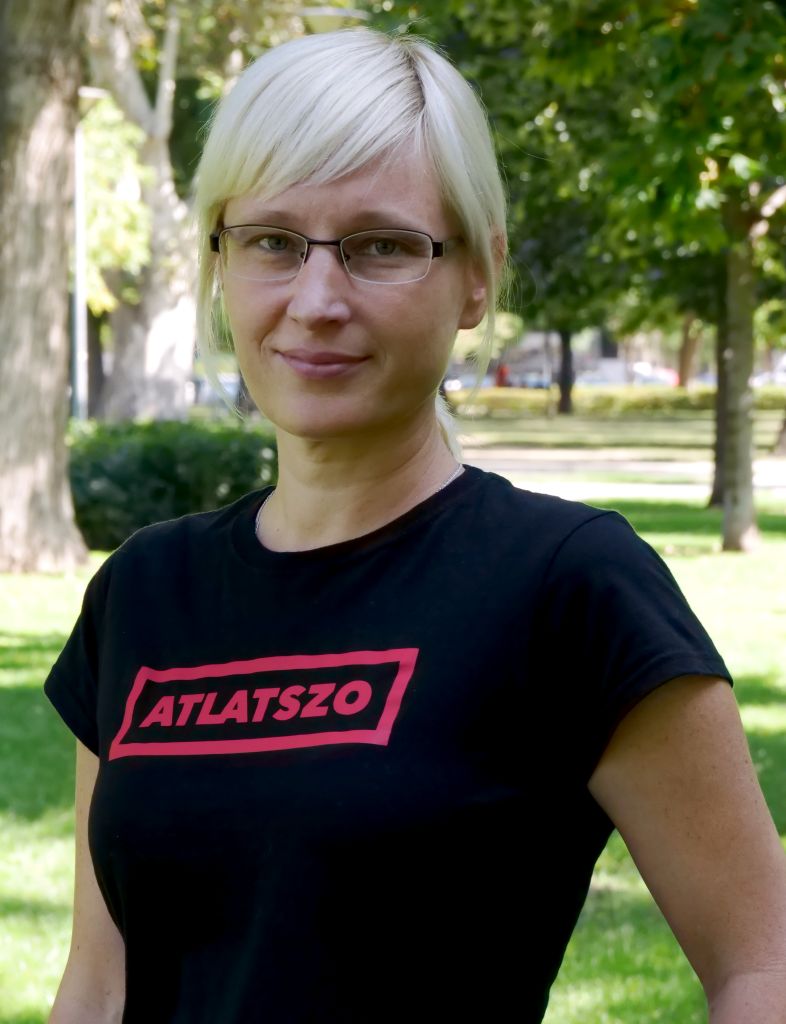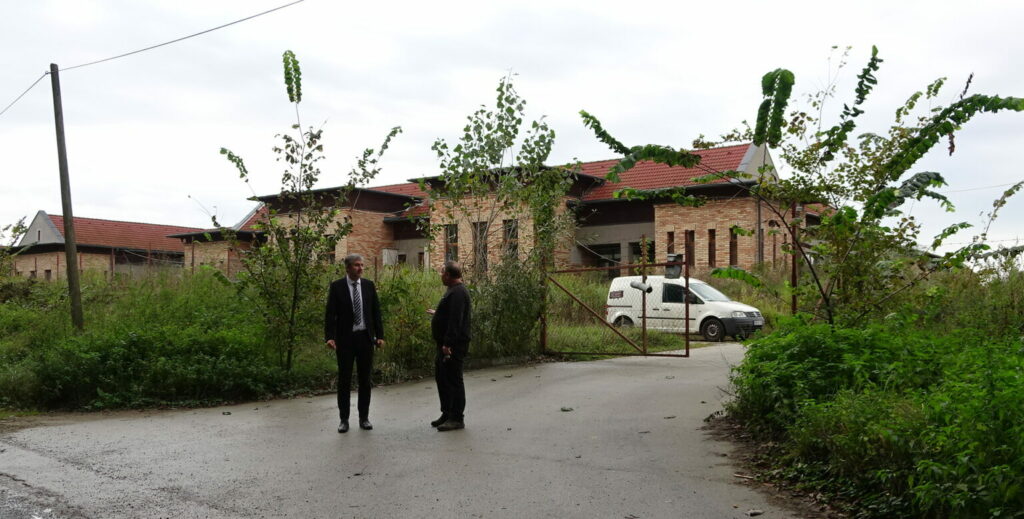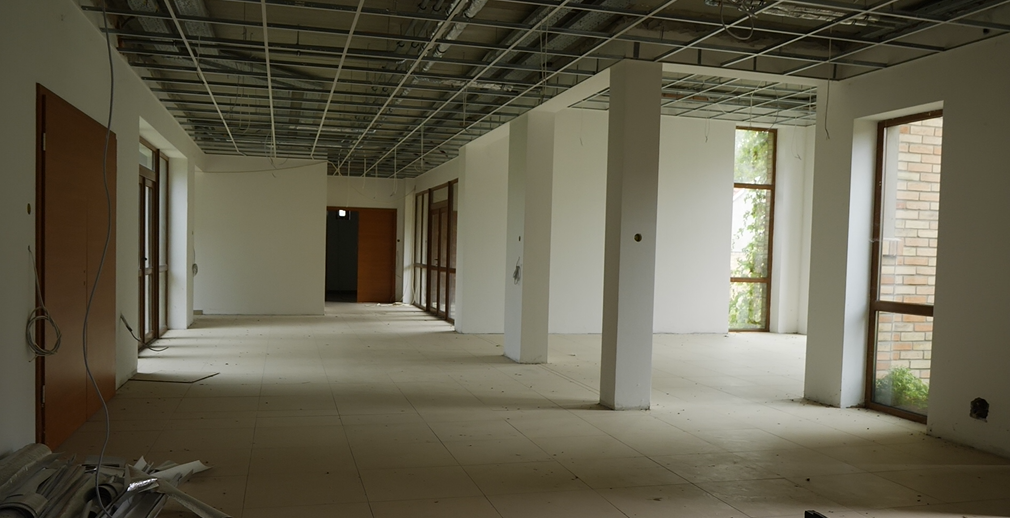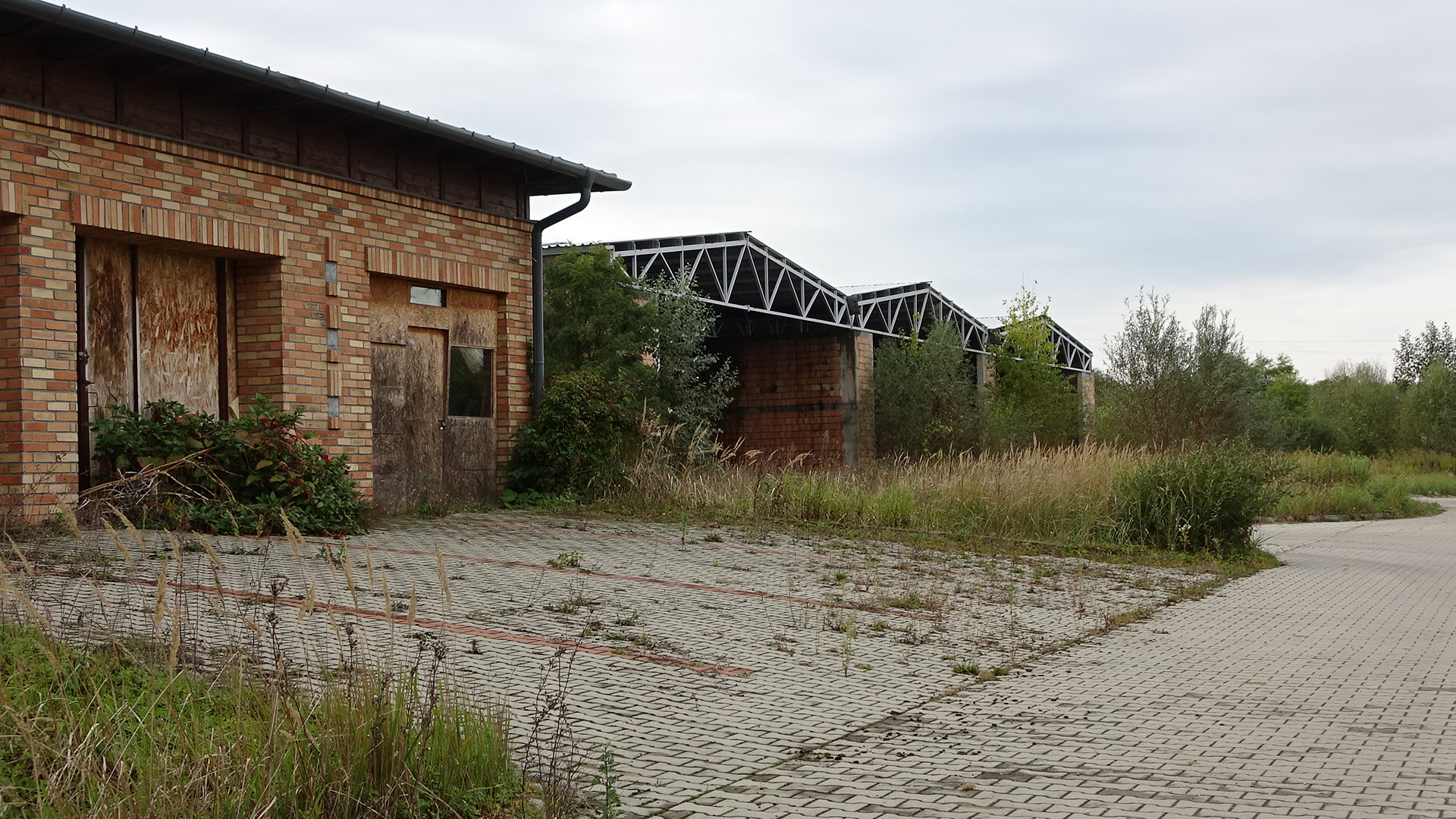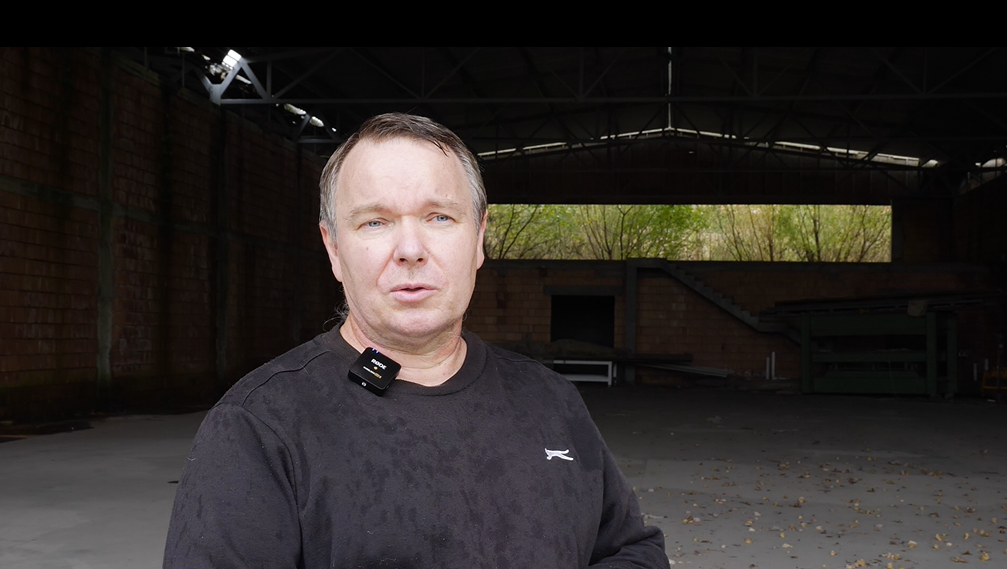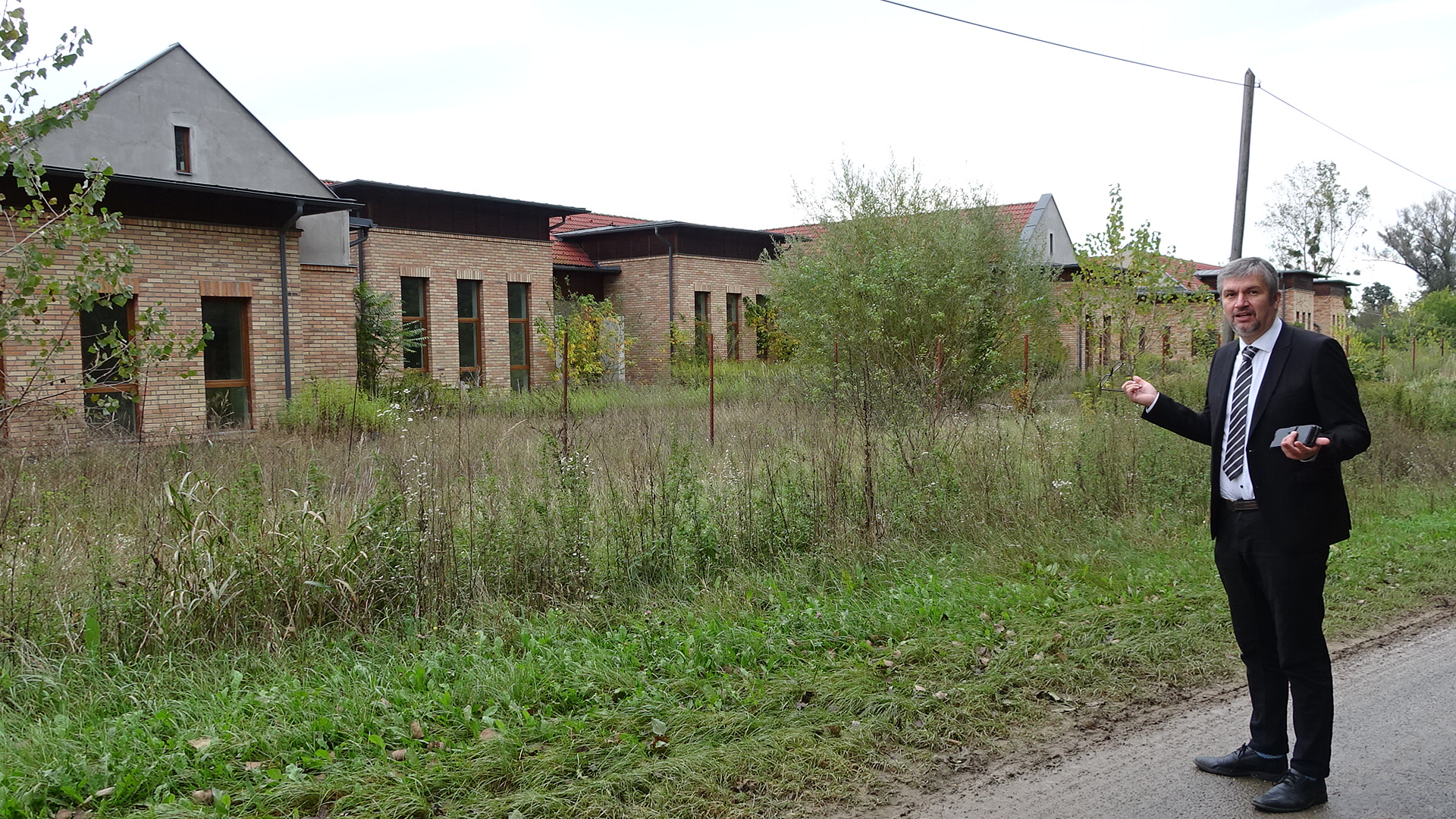The https://english.atlatszo.hu use cookies to track and profile customers such as action tags and pixel tracking on our website to assist our marketing. On our website we use technical, analytical, marketing and preference cookies. These are necessary for our site to work properly and to give us inforamation about how our site is used. See Cookies Policy
Half a billion forints of EU funding wasted by never-completed aircraft parts factory, owner says the state is to blame
Elegant buildings, with lots of weeds among them. That’s pretty much what the Somogyvár aircraft parts manufacturing factory, which should have been operational for years, looks like now. Pelso Management Kft. won an EU grant of nearly half a billion for the investment, and although the buildings were erected, production never started. According to the company’s representative, it is not their at fault, but the state would claim the money back. We visited the site with independent MP Ákos Hadházy.
In 2010, the then-mayor of Somogyvár announced the construction of a plastic aircraft parts manufacturing factory in the town for one billion HUF. Pelso Management Kft. has won HUF 446 million in EU funding for the investment. The company planned to open the factory within two years and would employ 300 people over time. This has not yet happened.

“Pelso Management Kft., which intends to establish a technology centre for the development of aircraft, space, and ground vehicles, has been given the green light for development in Somogyvár with 45 percent funding under the South Transdanubian Operational Programme (DDOP)” the county daily wrote at the time.
They added:
“the original plan was to produce composite elements for around 20 aircraft a year from 2012.
They were awarded the grant in March 2010 and were due to be ready by October 2014. However, the factory was not completed then and has not been completed since.
Pelso Management, founded in 2008, currently has 0 employees. It has been owned by Cydonia Capital Ltd. for two years. Before the company was incorporated in the UK, Cydonia International Corporation of the Marshall Islands was the majority owner. János Dósa from Szigetszentmiklós was the managing director of both Pelso Management and Avana Aerospace Kft.
Avana Kft. has since gone into liquidation and according to the Opten company database, Pelso Management has not had any revenues for years.
And not only is the company struggling, but the project is not progressing either. A visit to the site revealed that it would not take much to complete, but the managing authority’s patience had run out in the meantime. At least that’s what the documents provided by the company’s representative tell us.
The state demands its money back
According to one of the 2018 documents, a site visit was carried out in 2016. The managing authority extended the completion date to 31 March 2017. As the project was only partially completed (70%) and the facility did not have a permit for use, the Ministry of National Economy closed the investigation with a finding of “irregularity”. As a result,
the company was asked to pay back the HUF 446 million in EU funding plus interest.
The text also states that according to the beneficiary, the completion of the project was made impossible by “administrative and other errors and error correction procedures and other factors outside the control of the applicant”. However, these objections were considered to be unfounded.
“They have stalled several of our projects”
János Dósa, the managing director states that the factory could not be completed for reasons beyond their control, which is a great loss for them.
According to the company director, their difficulties started when, despite two years of prior consultation with the building authority and the municipality at the level of the building layout plan, it turned out that they had been wrongly granted a building permit for a building of 3,200 square metres instead of the 2,500 allowed by the Local Building Regulations. This could have been rectified in a relatively short time by an amendment to the Local Development Plan, but for some reason, it was not done.
According to János Dósa, the board dragged the matter out for five years, while they had previously amended the rules in eight days for another similar industrial plant. The result was that they ran out of time. Although they asked for an extension, the public body responsible for signing the amendment to the grant contract was in the meantime – illegally, according to Mr Dósa – terminated.
But this was just one of many illegal steps, according to the company director. They have tried to seek redress in several forums and have even launched an irregularity procedure against the managing authority within the Ministry of Finance for non-compliance with the terms of the contract, but so far they have not succeeded. János Dósa pointed out that they had several points of complaint against the actions of the municipal and public authorities, and
until the legal situation is clarified, they cannot and will not proceed with the works.
He added that the government had blocked several of their projects in Hungary and that their complaints were adjudicated by the same authority (and in fact the same person) as the one they had complained against.
According to Dósa, there are people who do not want them to achieve anything in this country, including in aircraft manufacturing, thereby jeopardising the operations of companies with the same profile and political backing. He claims that they have a final court judgement that a government body has refused to enforce for 12 years, “specifically to hinder their development work and international cooperation”.
Hundreds of millions of EU funds wasted
We contacted the municipality, but they had not responded by the time of publication of our story.
MP Ákos Hadházy said that it is unfortunately not unusual that almost half a billion forints of EU funding have been paid out without a single penny of real economic results. However, the case is different from the others in that the money awarded does not seem to have disappeared, but was actually used for what it was intended.
He added that if what Dósa said is true, we are back to the reality of the mafia state. It would be hard to believe that a local government would have put off investment without any ulterior motive by a simple, formal decision. “The silence of the municipality does not help to answer the questions. In any case, if someone did have a premeditated intention to block the start-up of the aircraft factory, there are two logical reasons.
One is that the investor might not have wanted to “redistribute” any of the subsidy. The other is that behind all of this, there is a competing company. The factory owner could not provide evidence of this, but it does not rule out the possibility.
Translated by Zita Szopkó. The original, more detailed Hungarian version fo this story was written by Eszter Katus and can be found here.
Share:
Your support matters. Your donation helps us to uncover the truth.
- PayPal
- Bank transfer
- Patreon
- Benevity
Support our work with a PayPal donation to the Átlátszónet Foundation! Thank you.
Support our work by bank transfer to the account of the Átlátszónet Foundation. Please add in the comments: “Donation”
Beneficiary: Átlátszónet Alapítvány, bank name and address: Raiffeisen Bank, H-1054 Budapest, Akadémia utca 6.
EUR: IBAN HU36 1201 1265 0142 5189 0040 0002
USD: IBAN HU36 1201 1265 0142 5189 0050 0009
HUF: IBAN HU78 1201 1265 0142 5189 0030 0005
SWIFT: UBRTHUHB
Be a follower on Patreon
Support us on Benevity!
